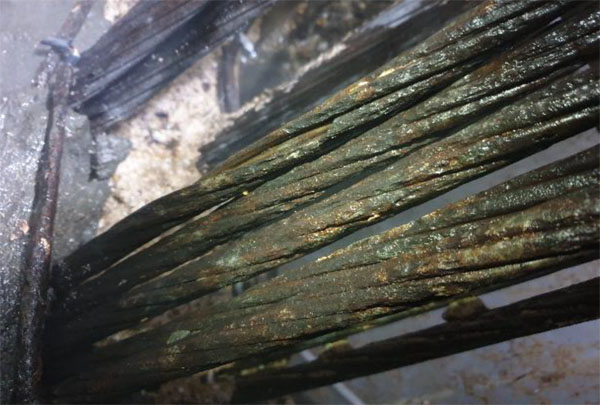The number of substandard road bridges managed by councils across Great Britain is increasing, new research shows.
According to the latest survey by the RAC Foundation, local authorities in England, Scotland and Wales have identified 3,105 bridges - structures over 1.5m in span – as being substandard.
This was 1.6% up on the 3,055 figure twelve months before. Councils responding to the survey are responsible for maintaining 71,656 bridges, meaning that 4.3% of the inventory is substandard.
Substandard means unable to carry the heaviest vehicles now seen on British roads, including lorries of up to 44 tonnes. Many of the substandard bridges are subject to weight restrictions. Others will be under programmes of increased monitoring or even managed decline.
However, councils reported that, at the time they responded in Autumn 2020, 10 bridges across Great Britain had fully collapsed in the previous 12 months. A further 30 had partially collapsed.
The RAC Foundation said that, despite these failures, the analysis also shows an apparent large decline in the number of bridges being assessed for (scour) damage caused by river flow.

Corroded cables on the A52 Clifton Bridge
Foundation director and Highways magazine columnist Steve Gooding said: 'We might not yet be at the stage where London Bridge has fallen down, as described in the nursery rhyme, but several other bridges across the country have suffered partial or total collapses.
‘At the same time there has been a worrying decline in the number of inspections carried out to examine just how much damage rivers, and the debris they carry, are doing to bridges below the waterline. This is storing up trouble for the future as our weather gets more extreme and traffic volumes rise again after the COVID-19 restrictions.’
Kevin Dentith, chair of the ADEPT National Bridges Group, said: ’The serious flooding we have just experienced across England means bridges with foundations in watercourses will have again been subjected to scouring. Bridge owners should satisfy themselves that appropriate action is in place to ensure the more susceptible bridges are protected.
‘As someone who has been promoting scour assessments at national conferences, webinars and advising Highway England with the BD97/12 update it is worrying that whilst the industry knows scour is the main cause of bridge collapse the survey shows the number of scour assessments has dropped so significantly where it should be increasing.’
Mr Dentith said there could be several reasons for this, including COVID-19 but that the trend needs to be reversed.’
The analysis was based on responses to FOI requests made by the RAC Foundation in October 2020 to 206 local highways authorities. Of the 206 councils asked, 199 provided data.
Between them, councils said they would ideally want to bring 2,256 (73%) of the 3,105 substandard bridges back up to full carrying capacity.
However, a lack of cash means they anticipate that only 392 of these will have the necessary work carried out on them within the next five years.
The estimated cost to bring all the substandard bridges back up to perfect condition is £985m (down slightly on the £1.1bn figure of a year earlier).
The study reveals that the one-time cost to clear the maintenance backlog on all 71,656 bridges is £5.54bn, down fractionally from the previous year’s figure of £5.55 bn.
The Foundation pointed to restrictions imposed on the 133-year-old Hammersmith Bridge over the Thames in London (below), with work required to re-open it estimated to cost £141m.
As another example of ‘the chaos’ caused when a bridge fails, it cited the congestion that arose following the closure of part of the A52 Clifton Bridge over the River Trent in Nottingham in February 2020 after corrosion was found to have affected steel reinforcing rods. The bridge is managed by Highways England.
The Foundation said that while no local authority manages structures directly technically comparable with the Morandi Bridge that collapsed in Genoa in August 2018, they do have a number of post-tensioned bridges with hidden cables. These bridges require intrusive inspections (Post-Tensioned Special Inspections or PTSIs) that can cost £100,000 each.
Register now for full access
Register just once to get unrestricted, real-time coverage of the issues and challenges facing UK transport and highways engineers.
Full website content includes the latest news, exclusive commentary from leading industry figures and detailed topical analysis of the highways, transportation, environment and place-shaping sectors.
Use the link below to register your details for full, free access.
Already a registered? Login